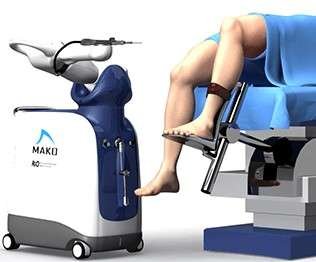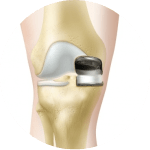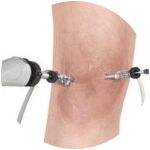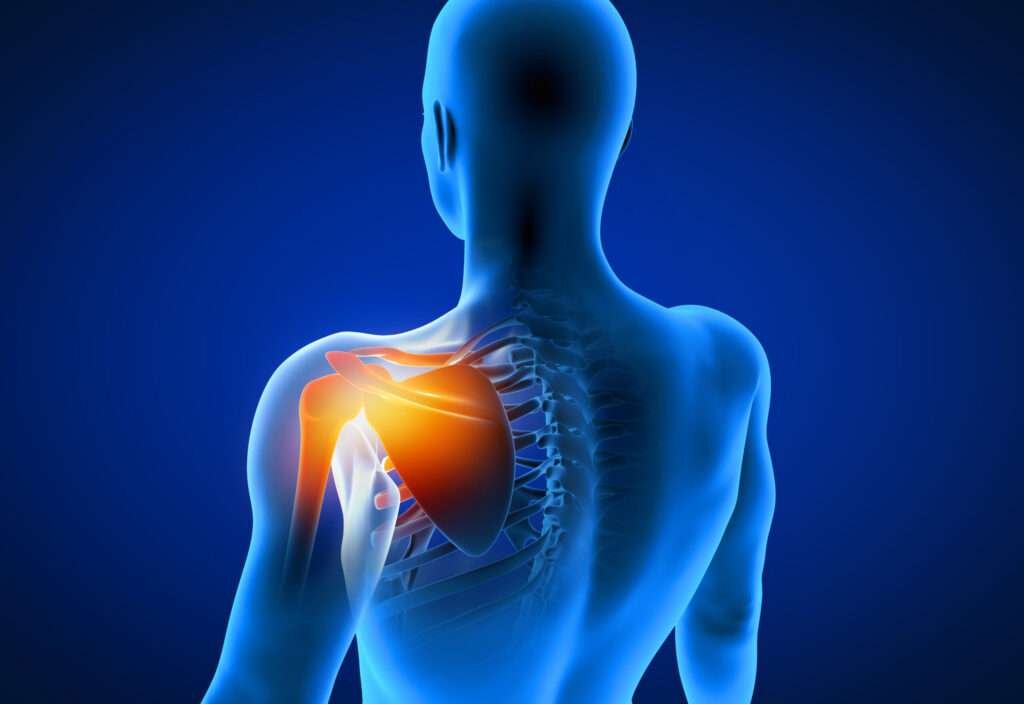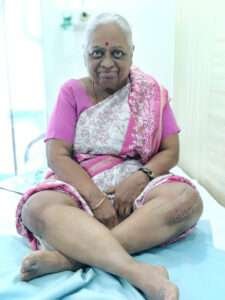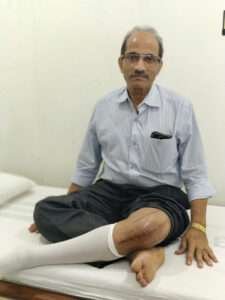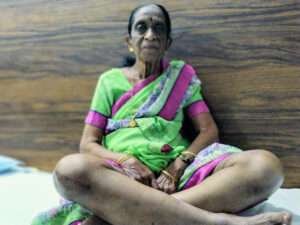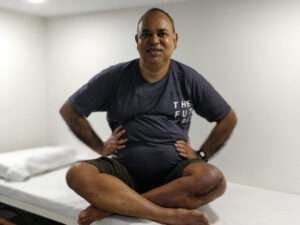Arthroscopic ACL reconstruction
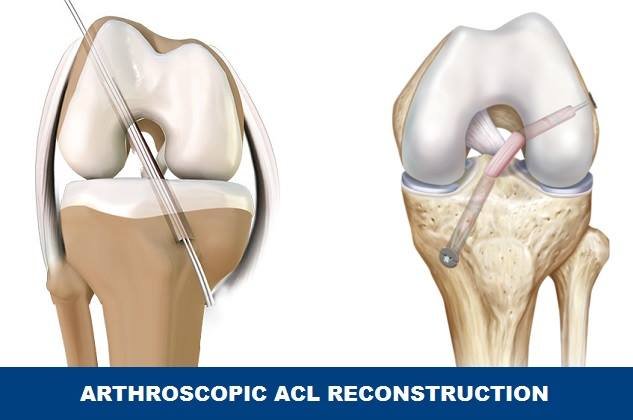
What is ACL?
The Anterior Cruciate Ligament is the ligament that keeps the knee stable. ACL is one of the four main ligaments in the knee that connects the femur to the tibia. The knee is normally a hinged joint that is held together by the medial collateral (MCL), lateral collateral (LCL), anterior cruciate (ACL) and posterior cruciate (PCL) ligaments.
How ACL gets injured?
ACL injury is generally caused during the sports are when a person is hit to another person or a strong object on the knee. The injury can occur when the foot is firmly planted on the ground and a sudden force hits your knee while your leg is straight or slightly bent.
Anterior Cruciate Ligament damage is a very common injury, especially among athletes. ACL injuries can be categorized into groups- contact and non-contact based on the nature of the injury Contact injuries occur when a person or object come into contact with the knee causing the ligament to tear. However, non-contact tears typically occur during the following movements: decelerating, cutting, or landing from a jump. ACL injury is 4-6 times higher in females than in males.
Why is ACL surgery necessary?
ACL tears are not generally repaired and sewed back together, because repaired ACLs have generally been shown to fail over time. Therefore, the torn ACL is generally replaced by a substitute graft made of tendon.
• Patellar tendon autograft
• Hamstring tendon autograft
• Quadriceps tendon autograft
• Allograft patellar tendon, Achilles tendon, semitendinosus, gracilis, or posterior tibialis tendon
What problems you may face if your ACL gets torn?
The patient suffering from ACL injury often have difficulty in walking. It can also cause loud poping sound of knees as the ligaments tear,including knee swelling and pain.
How ACL Surgery is done?
Arthroscopic ACL Reconstruction is done via key-hole surgery, wherein the torn ACL is reconstructed using a graft. This graft is extracted from your own body. Hamstring Tendon graft is the most common graft used. These tendons are dispensable and cause no long term side effects.
Small tunnels are drilled in bone to place the graft in the anatomical site of ACL.
How is post-op recovery after ACL surgery?
Some physical therapy under the guidance of physiotherapist guidance will help to regain the flexibility of the ligament, it will prevent the breaking of the tissue and will help in strengthening the muscle tone.
Approximately 4-6 weeks is required for the bone to attach to the graft. However, patient can start their normal activities like walking on their own and do some exercises under proper observation and care.
Famous Sportsman who have underwent ACL Surgery?
1. Cheteshwar Pujara (Indian cricketer and was a part of Kolkata Night Riders in 2009)
2. Luis Suarez (Liverpool Football Player)
3. Tom Brady (five-time Super Bowl champion)
4. Kieron Pollard (Cricketer from the West Indies and IPL player for Mumbai Indians)
5. Tiger Woods (World-famous pro-golfer )
6. Kurt Zouma (Football star player for Chelsea)
7. Mary Pierce (Tennis Champion)
8. Derrick Rose (Former NBA player)
9. Usman Khawaja (Australian batsman)
10. Xavier Hernandez (famous Spanish footballer who holds Barcelona’s record)
Thank You "Times Group" for felicitating Arora Clinic for "Excellence in Patient Care"
We are really honored to receive this and we will continue to serve the society better than ever We aim to provide the world-class Knee/Hip Replacement Surgical (Minimal Invasive Surgery) treatment to every patient suffering from knee or hip pain and at the same time make their life pain-free and happy.
Our Services
Are you looking for Best Knee Replacement Surgeon?
Then you are at Right Place
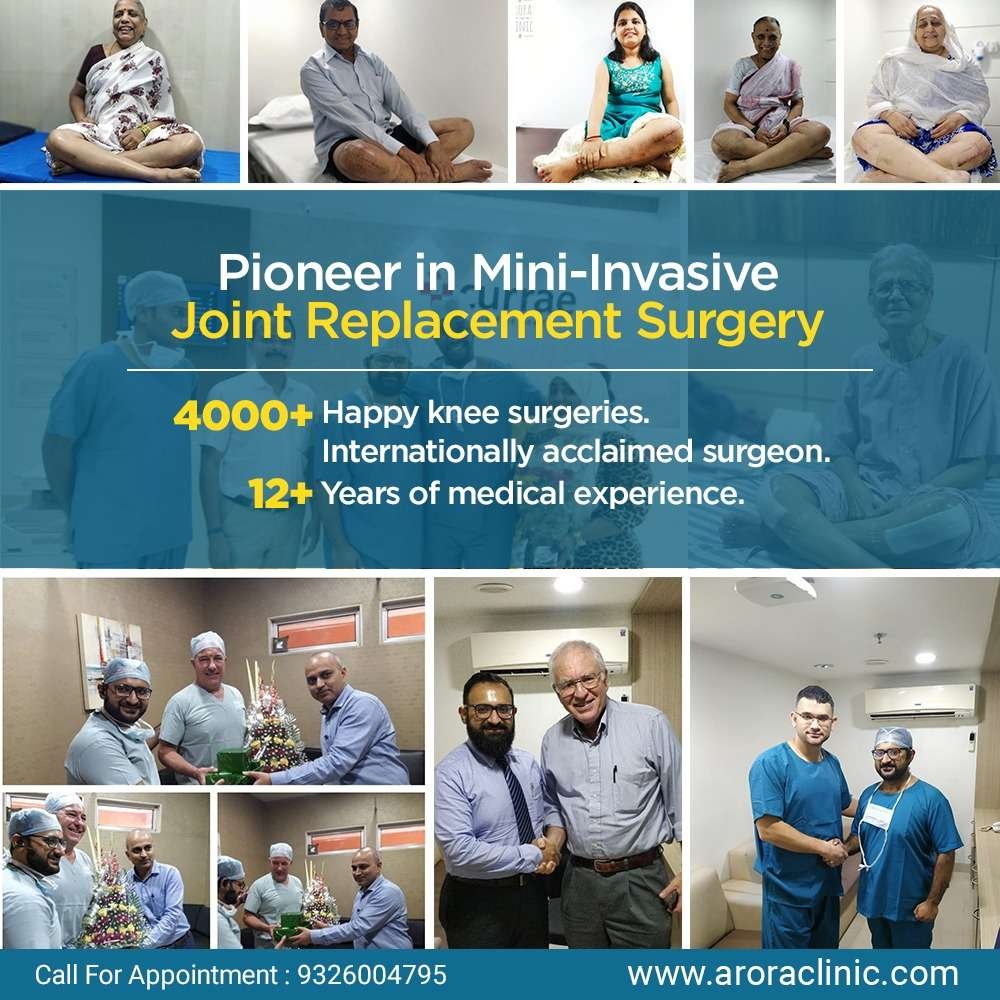
Dr. Bakul Arora’s Joint Replacement Clinic is also known as “Arora Clinic” which is located at Hiranandani Meadows in Thane, within a very convenient proximity to Mumbai. Arora Clinic dedicated clinic for Knee Replacement surgery and all kinds of Orthopaedic treatments and surgeries
The Arora Clinic is one of the most advanced Orthopaedic clinic in Thane region and dedicated to providing the best, personalised healthcare with a breadth of surgical and medical expertise. Arora Clinic offers the modern surgical treatments like “Minimally Invasive Knee Replacement Surgery” which is also called as “PAIN-LESS SURGERY” for any complex knee diseases.
About Surgeon
Dr. Bakul Arora is a Consultant Joint Replacement & Orthopaedic Surgeon is one of the leading Knee Replacement Surgeon in Thane and Mumbai with over 4000+ successfully surgeries. Dr. Bakul Arora specialises in Mini-invasive techniques which offer multiple benefits to patients. He does the surgery using Subvastus approach for Knee Replacement surgery and Direct Anterior Approach for Hip replacement Surgery . This new techniques has many advantages for patients like its pain-less , stich-less surgery, patients walks on the same day after surgery, no blood loss, faster recovery etc.


Patients Review on Arora Clinic
International Patients Videos
FAQS
Knee replacement is required for advanced arthritis of the knee joint, producing painful limitation of movements and restriction in activities of daily living. Knee replacement as a solution should be offered when all non–surgical methods of treatment failed and painkiller medicines and injections also failed to reduce the Knee and hip pains.
Knee replacement can be total or unicondylar, depending on the number of compartments involved. Among the total knee replacement, there are two popular designs- Cruciate Retaining, and Posterior Stabilized. The decision for the design is best taken by the operating orthopedic surgeon based on the integrity of ligaments. Patella resurfacing as a routine is a debatable subject.
Yes, most knee replacement surgeries are minimally invasive, with numerous benefits to the patient, including smaller incisions, less tissue trauma, bleeding and post–operative pain, shorter hospital stays, faster recovery, and earlier return to work and activities — in weeks rather than months. Advantages of Minimally Invasive Knee Replacement Surgery. Patients Start walking in few hours of surgery. Patients start climbing the staircase from second day of his surgery. Patients Discharge with in 3 Days from the Hospital after surgery. No blood loss during the surgery, no blood Transfusion required. Less Physiotherapy.( No Physiotherapist required for home) Less Antibiotic. Stitchless Surgery. Recovery time is just two – three week.
Bilateral knee replacement in the same sitting, can be performed if both the knee joints are damaged to the same extent, however, the medical condition of the patient, and bone quality must be kept in consideration.
Surgery through Minimally Invasive technique patients start walking on the same day and staircase climbing starts from the second day of surgery. Patients can resume his work after 3 – 4 week.
The most significant risks include Infection, Deep vein thrombosis,and Aseptic loosening of implants. The risks correlate with the co-morbid medical condition, and must be discussed with the patient before surgery.
Patients normally require hospitalization for 3-4 days in single knee replacement, and up to 5-6 days in both knee replacement surgery
A single knee replacement takes approximately 90 min- 2 hours. Both knee replacement surgery takes approx 2-3 hours.
Years ago, knee replacement surgery was reserved for elderly patients due to a high complication rate and lack of implant durability. Modern techniques have allowed orthopaedic surgeons to base surgical decisions on a patient’s pain and disability, and not necessarily chronological age. Most patients who undergo knee replacement are between the ages of 50 and 80, but surgeons evaluate patients individually and primarily on their physiologic age and demands.
Patients can resume his/her light work after discharge from the hospital, no need for rest.
Patients are given epidural anesthesia for surgery, and post op pain relief. They are expected to follow instruction from physiotherapist regarding muscle training.
News Events


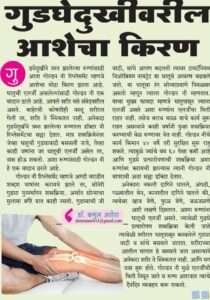
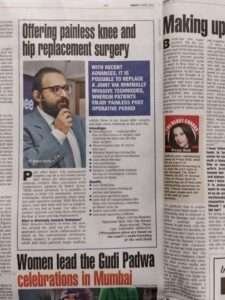
Locate Our Clinic
OUR HOSPITAL PARTNERS
MUMBAI
⇒ Wockhardt Hospital Mumbai Central, Mira road & Vashi
⇒ Apollo Spectra Hospital, Tardeo and Chembur
⇒ Cloud 9 Hospital, Malad
⇒ Criticare Hospital, Andheri
THANE
⇒ Arora Clinic, Hiranandani Meadows
⇒ Bethany Hospital, Vasant Vihar
⇒ Currae Hospital, Kapurbawdi
⇒ Horizon Hospital, Ghodbunder
⇒ Infinity Hospital, Majiwada
⇒ Lakecity Hospital, Khopat
⇒ Oscar Hospital, Majiwada
⇒ Drone Hospital, Bhiwandi


